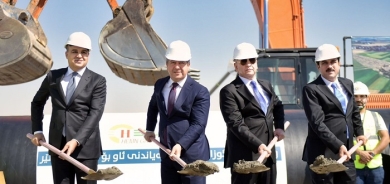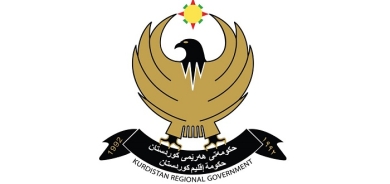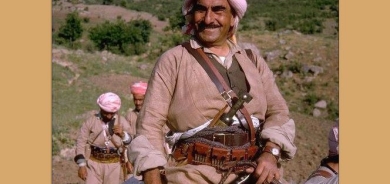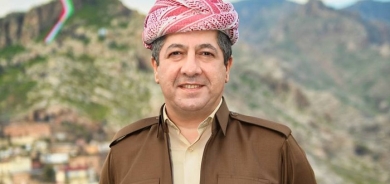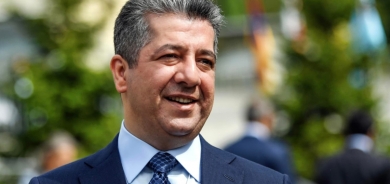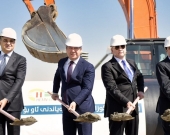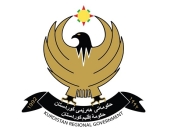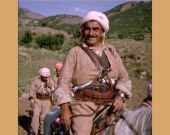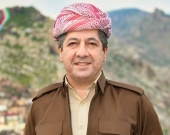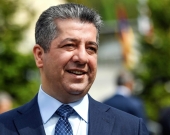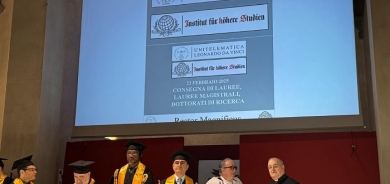Kirkuk: The Heartache and Symbol of Kurdish Identity

Kirkuk, sometimes referred to as the 'Kurdish Jerusalem,' holds a deep emotional and historical significance for Kurds. This symbolic reference, which equates Kirkuk with Jerusalem, underscores the city's sacredness and centrality in Kurdish identity and struggle.
In a recent poetic reflection, Masrour Barzani, the Prime Minister of the Kurdistan Regional Government (KRG), articulated the profound pain and enduring hope tied to Kirkuk’s legacy. Through powerful verses, he evokes the city's suffering, resilience, and its symbolic role in the Kurdish quest for recognition and self-determination.
The poem opens with a rhetorical challenge: "They tell me: Kurdish Jerusalem. When is this justified and conscientious?" These lines question the basis of the comparison, while simultaneously affirming Kirkuk’s unique status in Kurdish hearts and minds. Barzani’s assertion that "May Jerusalem be holier than I am, May its name be dearer to me" reflects a reverence for Jerusalem while maintaining Kirkuk’s distinct place in Kurdish consciousness.
This perspective presents a subtle critique of the oft-repeated comparison of Kirkuk to Jerusalem, a sentiment famously articulated by former Iraqi President Jalal Talabani, who described Kirkuk as "the Jerusalem of Kurdistan." While Talabani’s statement highlights the emotional and symbolic attachment Kurds have to Kirkuk, Barzani’s poem appears to argue for Kirkuk’s unique and intrinsic value beyond mere comparison. His words suggest that Kirkuk’s significance should be acknowledged on its own terms, rather than through analogies to other places, no matter how holy or symbolic they may be.
ئەم هۆنراوەم پێش چەندین ساڵ وەک وەڵام و دەردەدڵێکی کەرکوک نووسی بەڵام هیچکات بڵاوم نەکردەوە تا ئێستا. pic.twitter.com/wPL08qMrN2
— Masrour Barzani (@masrourbarzani) December 19, 2024
Barzani’s verses recount the city’s long history of sovereignty and its enduring resistance to occupation. He describes Kirkuk as "The city of Anfal and my victims — I am occupied and imprisoned," alluding to the Anfal campaign, a brutal genocidal operation against the Kurds carried out by the Ba’athist regime of Saddam Hussein. This historical reference invokes the pain and trauma endured by the city's Kurdish population.
The displacement of Kirkuk’s original inhabitants is a recurring theme in Barzani’s reflections. He writes, "My owners were expelled, Strangers were put in their place," highlighting the demographic engineering imposed on the city. Kurds have long accused successive Iraqi regimes of altering Kirkuk’s demographics through forced displacement and Arabization policies.
The lament continues as he questions the erasure of Kirkuk’s Kurdish identity: "Why do they forget my history? They blur my name and address. Why do they underestimate my name? They compare me to other places." These lines capture the sense of cultural and historical marginalization felt by Kurds, who view the city as an inseparable part of Kurdistan’s heritage. The critique here appears directed at those who diminish Kirkuk’s role and identity by comparing it to other locations, including Jerusalem, as if it requires validation through external references.
Barzani’s poem emphasizes Kirkuk’s role as a city of coexistence, where diverse communities have historically lived together. He asserts that "Peshmerga is my bodyguard," a nod to the Kurdish military forces who have fought to protect and reclaim the city. This sentiment reflects the broader Kurdish belief that Kirkuk’s security and future lie in the hands of its rightful residents and their defenders.
The poem concludes with a declaration that resonates deeply with the Kurdish cause: "Barzani's words are beautiful: Kirkuk is the heart of Kurdistan." By invoking the words of Kurdish leader Mustafa Barzani, the Prime Minister reaffirms the city’s central place in the Kurdish homeland and the ongoing struggle to maintain its Kurdish character. This assertion stands as a response to the earlier comparison to Jerusalem, offering a more definitive perspective. Rather than seeking equivalence with another holy city, Barzani’s message asserts Kirkuk’s intrinsic and unparalleled value as "the heart of Kurdistan," a phrase that emphasizes its role as the political, cultural, and emotional center of Kurdish nationalism.
Barzani’s poetic reflection is more than a literary exercise—it’s a political statement and a call for the recognition of Kirkuk’s rightful status within Kurdistan. The poem serves as a reminder of the sacrifices made by its people and the enduring hope for justice, coexistence, and sovereignty. It reaffirms Kirkuk’s place not only in the territorial map of Kurdistan but also in the hearts and minds of its people.
This is a translation of the poem:
Kirkuk's Heartache
They tell me: Kurdish Jerusalem
When is this justified and conscientious?
May Jerusalem be holier than I am,
May its name be dearer to me.
My history is full of sovereignty,
The struggle against occupation.
The city of Anfal and my victims —
I am occupied and imprisoned.
My owners were expelled,
Strangers were put in their place.
Why do they forget my history?
They blur my name and address.
Why do they underestimate my name?
They compare me to other places.
My city of coexistence,
Peshmerga is my bodyguard.
Barzani's words are beautiful:
Kirkuk is the heart of Kurdistan.
— Masrour Barzani

